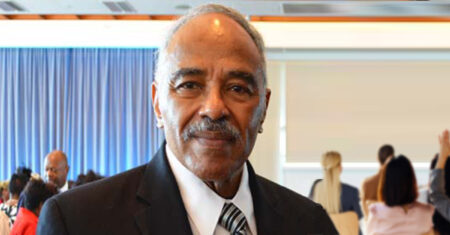By Theresa A. Lucas
When it comes to education reform, Mississippi consistently ranks dead last—not for lack of passionate teachers or hopeful families, but because of a system that lags behind and remains resistant to change.
As Southern states like Florida, Arkansas, and Louisiana expand school choice options and empower parents to make decisions best suited for their children, Mississippi remains curiously stuck in neutral. The burning question we must ask ourselves is: why?
The National Momentum
In 2024, over 20 Southern and conservative-led states have aggressively pursued educational choice through charter school expansion, education savings accounts (ESAs), and voucher programs. According to a survey conducted by Morning Consult, approximately 72% of school parents support ESAs, 68% support vouchers, and 66% support charter schools. These policies have increased access to specialized education paths, accommodated diverse learning needs, and provided lifelines for families in underserved communities.
Mississippi doesn’t need to reinvent the wheel. We can look to neighboring states for successful models. Florida’s school voucher program has helped thousands of low-income students access private education. Arkansas recently passed universal ESAs. Even Alabama, historically cautious in educational reform, has made strides in supporting school choice.
What Mississippians Actually Want
Mississippi, on the other hand, has kept its educational choices limited—especially for low-income, minority, and rural families. This has stifled educational innovation in the state, leaving many families feeling hopeless and frustrated, with limited power to advocate for their children.
It’s not that Mississippians don’t want better options. Time and again, they have proven they do. Parents across the state are expressing frustration about overcrowded classrooms, outdated curricula, and test scores that have remained stagnant for decades. Furthermore, standardized testing captures only a fraction of students’ true capabilities. Many families would gladly embrace charter schools, microschools, or homeschooling co-ops if given funding or legislative support. But the problem lies in the state’s hesitancy to disrupt the traditional public school system and create pathways for diverse education and learning environments.
To be clear, this isn’t an anti-public-school argument. Mississippi has many dedicated educators doing their best with limited resources. But we cannot ignore the truth: the one-size-fits-all model no longer serves the diverse needs of 21st-century learners. Children deserve more than a default system based on their ZIP code. Parents deserve more than waiting lists or underperforming districts as their only option.
So What’s Holding Us Back?
So why aren’t we seeing movement in Mississippi the way we are in states like Florida?
First, politics plays a significant role. Mississippi’s education policy is heavily influenced by entrenched interests—public school lobbying groups, teacher unions, and state departments that often resist changes shifting funds away from traditional systems.
There’s a fear that introducing alternatives like charter schools or ESAs would “drain” money from public schools. But here’s the reality: public school funding has continued to increase over the past decade even as more school choice programs have launched. School choice is not about draining; it’s about diversifying. Providing families with more choices doesn’t take away from public education—it raises the bar for all schools to perform better.
Second, there’s a lack of urgency among lawmakers. Despite the data, despite the national momentum for school choice, and despite the cries of frustrated parents, Mississippi legislators often approach education reform with caution, citing budget constraints or the need for “further study.” Meanwhile, students slip through the cracks every year, never tapping into their full educational potential.
Third, rural access is a genuine barrier. Many areas in Mississippi lack the infrastructure for charter schools or educational co-ops. That’s why innovative models—like virtual learning platforms, mobile tutoring services, or hybrid homeschool networks—should be explored. But again, this requires political will, forward-thinking leadership, and strategic investment.
The Path Forward
What’s stopping Mississippi? We need to join them. If we claim to care about educational equity and outcomes, we can’t keep doing the same thing and expecting different results. True equity means giving every child—regardless of income, race, or location—access to an education that fits their needs, not forcing them to settle for whatever system they are born into.
Mississippi has the potential to lead, not follow. But first, we must recognize that parents are the primary stakeholders in their children’s education, not the bureaucracy. It’s time to stop fearing innovation and start embracing the idea that more choices can only make our state stronger.
Let’s give Mississippi’s children the freedom to thrive. Settling for less is no longer an option.
Theresa A. Lucas is a domestic engineer with ongoing experience in home education. She has traveled across state lines and overseas as a former military servicemember and currently resides in Mississippi, where she is a member of EdChoice’s Parent Corps. As an advocate for educational awareness, she knows firsthand the power of knowledge and strives to empower parents, children, and the family unit.







